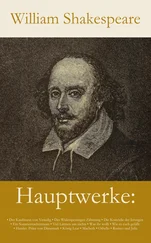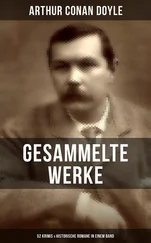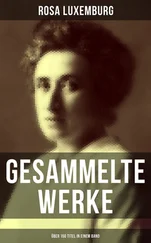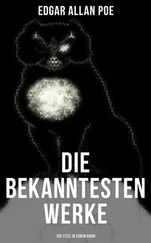Whiter than new snow upon a raven’s back.—
Come, gentle night;—come, loving, black-brow’d night,
Give me my Romeo; and, when he shall die,
Take him and cut him out in little stars,
And he will make the face of heaven so fine
That all the world will be in love with night,
And pay no worship to the garish sun.—
O, I have bought the mansion of a love,
But not possess’d it; and, though I am sold,
Not yet enjoy’d: so tedious is this day
As is the night before some festival
To an impatient child that hath new robes,
And may not wear them. O, here comes my nurse,
And she brings news; and every tongue that speaks
But Romeo’s name speaks heavenly eloquence.—
[Enter Nurse, with cords.]
Now, nurse, what news? What hast thou there? the cords
That Romeo bid thee fetch?
NURSE.
Ay, ay, the cords.
[Throws them down.]
JULIET.
Ah me! what news? why dost thou wring thy hands?
NURSE.
Ah, well-a-day! he’s dead, he’s dead, he’s dead!
We are undone, lady, we are undone!—
Alack the day!—he’s gone, he’s kill’d, he’s dead!
JULIET.
Can heaven be so envious?
NURSE.
Romeo can,
Though heaven cannot.—O Romeo, Romeo!—
Who ever would have thought it?—Romeo!
JULIET.
What devil art thou, that dost torment me thus?
This torture should be roar’d in dismal hell.
Hath Romeo slain himself? say thou but I,
And that bare vowel I shall poison more
Than the death-darting eye of cockatrice:
I am not I if there be such an I;
Or those eyes shut that make thee answer I.
If he be slain, say I; or if not, no:
Brief sounds determine of my weal or woe.
NURSE.
I saw the wound, I saw it with mine eyes,—
God save the mark!—here on his manly breast.
A piteous corse, a bloody piteous corse;
Pale, pale as ashes, all bedaub’d in blood,
All in gore-blood;—I swounded at the sight.
JULIET.
O, break, my heart!—poor bankrout, break at once!
To prison, eyes; ne’er look on liberty!
Vile earth, to earth resign; end motion here;
And thou and Romeo press one heavy bier!
NURSE.
O Tybalt, Tybalt, the best friend I had!
O courteous Tybalt! honest gentleman!
That ever I should live to see thee dead!
JULIET.
What storm is this that blows so contrary?
Is Romeo slaughter’d, and is Tybalt dead?
My dear-lov’d cousin, and my dearer lord?—
Then, dreadful trumpet, sound the general doom!
For who is living, if those two are gone?
NURSE.
Tybalt is gone, and Romeo banished;
Romeo that kill’d him, he is banished.
JULIET.
O God!—did Romeo’s hand shed Tybalt’s blood?
NURSE.
It did, it did; alas the day, it did!
JULIET.
O serpent heart, hid with a flowering face!
Did ever dragon keep so fair a cave?
Beautiful tyrant! fiend angelical!
Dove-feather’d raven! wolvish-ravening lamb!
Despised substance of divinest show!
Just opposite to what thou justly seem’st,
A damned saint, an honourable villain!—
O nature, what hadst thou to do in hell
When thou didst bower the spirit of a fiend
In mortal paradise of such sweet flesh?—
Was ever book containing such vile matter
So fairly bound? O, that deceit should dwell
In such a gorgeous palace!
NURSE.
There’s no trust,
No faith, no honesty in men; all perjur’d,
All forsworn, all naught, all dissemblers.—
Ah, where’s my man? Give me some aqua vitae.—
These griefs, these woes, these sorrows make me old.
Shame come to Romeo!
JULIET.
Blister’d be thy tongue
For such a wish! he was not born to shame:
Upon his brow shame is asham’d to sit;
For ‘tis a throne where honour may be crown’d
Sole monarch of the universal earth.
O, what a beast was I to chide at him!
NURSE.
Will you speak well of him that kill’d your cousin?
JULIET.
Shall I speak ill of him that is my husband?
Ah, poor my lord, what tongue shall smooth thy name,
When I, thy three-hours’ wife, have mangled it?—
But wherefore, villain, didst thou kill my cousin?
That villain cousin would have kill’d my husband:
Back, foolish tears, back to your native spring;
Your tributary drops belong to woe,
Which you, mistaking, offer up to joy.
My husband lives, that Tybalt would have slain;
And Tybalt’s dead, that would have slain my husband:
All this is comfort; wherefore weep I, then?
Some word there was, worser than Tybalt’s death,
That murder’d me: I would forget it fain;
But O, it presses to my memory
Like damned guilty deeds to sinners’ minds:
‘Tybalt is dead, and Romeo banished.’
That ‘banished,’ that one word ‘banished,’
Hath slain ten thousand Tybalts. Tybalt’s death
Was woe enough, if it had ended there:
Or, if sour woe delights in fellowship,
And needly will be rank’d with other griefs,—
Why follow’d not, when she said Tybalt’s dead,
Thy father, or thy mother, nay, or both,
Which modern lamentation might have mov’d?
But with a rearward following Tybalt’s death,
‘Romeo is banished’—to speak that word
Is father, mother, Tybalt, Romeo, Juliet,
All slain, all dead: ‘Romeo is banished,’—
There is no end, no limit, measure, bound,
In that word’s death; no words can that woe sound.—
Where is my father and my mother, nurse?
NURSE.
Weeping and wailing over Tybalt’s corse:
Will you go to them? I will bring you thither.
JULIET.
Wash they his wounds with tears: mine shall be spent,
When theirs are dry, for Romeo’s banishment.
Take up those cords. Poor ropes, you are beguil’d,
Both you and I; for Romeo is exil’d:
He made you for a highway to my bed;
But I, a maid, die maiden-widowed.
Come, cords; come, nurse; I’ll to my wedding-bed;
And death, not Romeo, take my maidenhead!
NURSE.
Hie to your chamber. I’ll find Romeo
To comfort you: I wot well where he is.
Hark ye, your Romeo will be here at night:
I’ll to him; he is hid at Lawrence’ cell.
JULIET.
O, find him! give this ring to my true knight,
And bid him come to take his last farewell.
[Exeunt.]
German
Table of Contents
Friar Lawrence’s cell.
[Enter Friar Lawrence.]
FRIAR.
Romeo, come forth; come forth, thou fearful man.
Affliction is enanmour’d of thy parts,
And thou art wedded to calamity.
[Enter Romeo.]
ROMEO.
Father, what news? what is the prince’s doom
What sorrow craves acquaintance at my hand,
That I yet know not?
FRIAR.
Too familiar
Is my dear son with such sour company:
I bring thee tidings of the prince’s doom.
ROMEO.
What less than doomsday is the prince’s doom?
FRIAR.
A gentler judgment vanish’d from his lips,—
Not body’s death, but body’s banishment.
ROMEO.
Ha, banishment? be merciful, say death;
For exile hath more terror in his look,
Much more than death; do not say banishment.
FRIAR.
Hence from Verona art thou banished:
Be patient, for the world is broad and wide.
ROMEO.
There is no world without Verona walls,
But purgatory, torture, hell itself.
Hence-banished is banish’d from the world,
And world’s exile is death,—then banished
Is death misterm’d: calling death banishment,
Читать дальше












